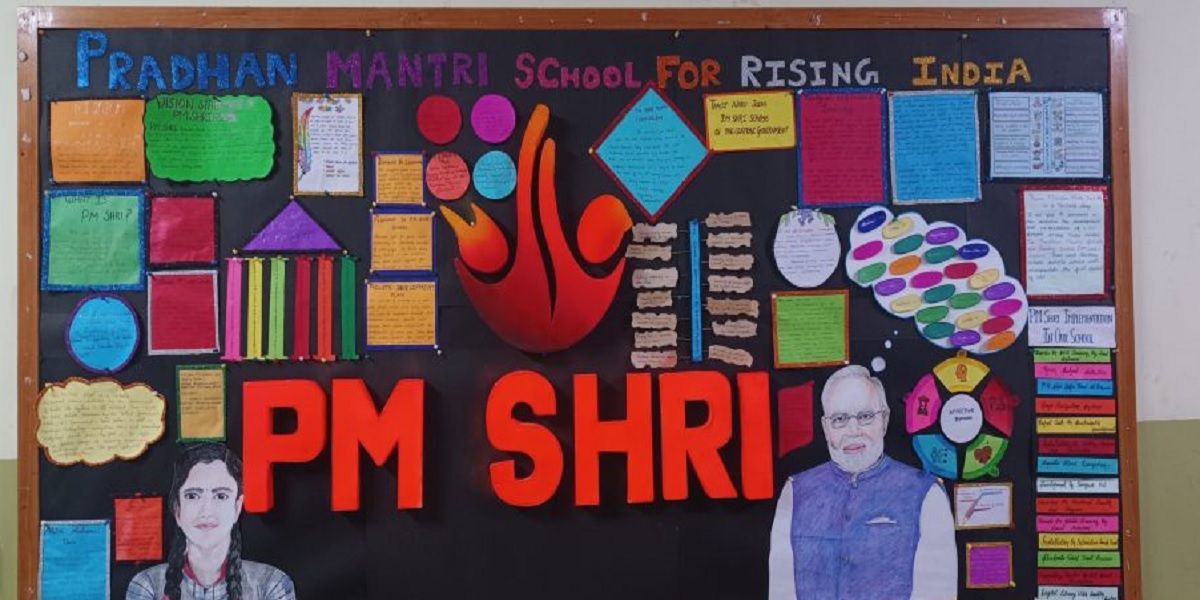Published Nov 14, 2025 | 12:33 PM ⚊ Updated Nov 14, 2025 | 12:33 PM

PM SHRI. (Supplied)
Synopsis: The ruling LDF in Kerala may have conveyed its intention to pause the implementation of PM-SHRI—weeks after signing up to the central scheme—under intense criticism from within the front, but it has done little to ease tensions between allies, the CPI(M) and the CPI. Education Minister V Sivankutty and CPI State Secretary Binoy Viswam have continued to engage in a public spat over the issue, even as the state gears up for the crucial local body polls in December, seen as a litmus test for the 2026 Assembly elections.
The Pinarayi Vijayan-led Kerala government’s decision in October to join the Union Government’s PM SHRI (Prime Minister’s Schools for Rising India) scheme triggered perhaps the sharpest rift within the ruling Left Democratic Front (LDF) in nearly two decades, bringing the CPI(M) and the CPI into open confrontation.
Facing mounting criticism, the state has since decided to walk back the decision—originally taken by a select few within the CPI(M) without consulting alliance partners—and has conveyed to the Centre its intention to put the scheme on hold. Yet the move has done little to ease tensions between the two allies.
Even as Kerala’s major political fronts gear up for local body elections, Education Minister V Sivankutty and CPI State Secretary Binoy Viswam have continued their public spat over the issue, exposing simmering ideological and political strains within the Left camp.
It was on 12 November that confirmation came that the state had officially informed the Union Ministry of Education that it had decided to put the PM SHRI scheme on hold until a Cabinet subcommittee reviews the agreement.
General Education Secretary K Vasuki sent the letter after the government consulted the Advocate General to assess the legal implications of the decision.
The move came two weeks after the state Cabinet decided to freeze the rollout of the Union Government’s flagship school modernisation programme.
The CPI had been fiercely critical of the government for signing up for the scheme without prior discussion in the Cabinet or within the Front.
Initially, there was a delay in communicating the Cabinet’s decision to the Centre, a delay that prompted CPI leaders to mount pressure on the government.
Binoy Viswam met CPI(M) State Secretary MV Govindan on Tuesday, while CPI Ministers held discussions with Chief Minister Pinarayi Vijayan the following morning.
Eventually, the letter was sent to the Union Ministry. Viswam described the development as the result of collective Left action.
“The LDF took the proper decision. We are glad that it was done. It is a victory of both the CPI and the CPI(M),” he said, asserting that both parties were united in opposing “RSS-oriented educational policies” in Kerala.
However, Education Minister V Sivankutty was far from pleased when Viswam called the government’s letter to the Centre a “victory for LDF politics.”
“This is not a matter of anyone’s victory or defeat,” Sivankutty retorted on 13 November. “The Left Front has a collective policy. It has only been decided that a solution should be found through consultation. The CPI(M) doesn’t need lessons from any centre on how to implement Left politics.”
He said his concern was over the fate of central funds. “Since the letter has been sent, there is concern about whether Kerala will receive its due share. If Samagra Shiksha Kerala’s ₹1,300 crore is withheld, I will not be responsible as Education Minister,” he warned, hinting that those pressing for the letter should be ready to face the consequences.
The minister further underlined that the government’s stance combined “administrative obligation with an uncompromising political position” to safeguard the state’s public education system.
“Preserving the secular and progressive nature of education is the firm stand of the Left. Kerala’s public education protection campaign doesn’t depend on any single scheme,” he said.
CPI State Secretary Binoy Viswam, however, said he was surprised by Sivankutty’s “provocation.”
“I don’t know why Comrade Sivankutty is angry. My political consciousness doesn’t allow provocation or anger,” he remarked.
Viswam argued that the education minister was conflating two distinct issues. “PM SHRI and Samagra Shiksha Kerala are not the same. It is BJP politics to link the two. The CPI’s position is that Kerala has the right to receive Samagra Shiksha funds under the Right to Education Act. If the Centre withholds these funds citing PM SHRI, the Left will resist politically and legally,” he said.
Reiterating that the CPI was not claiming exclusive credit, Viswam said, “This is not a CPI victory. It is a victory of LDF’s ideology and unity, the triumph of a politically conscious teachers’ and students’ movement across India resisting the RSS-backed PM SHRI agenda.”
The CPI(M) views the PM SHRI scheme as an extension of the National Education Policy (NEP), which it believes promotes centralisation and saffronisation of education.
Yet the CPI(M) leadership was initially open to selectively adopting parts of the scheme that did not contradict Kerala’s education laws, if it meant unlocking the funds that the Centre has been withholding conditional on the state signing up for PM SHRI.
The CPI, however, has taken a harder line, arguing that joining the scheme would amount to legitimising the NEP’s ideological underpinnings.
While Sivankutty emphasised that “the CPI(M) knows Left politics well enough and does not need lessons from any centre,” Viswam countered by saying that veterans like MA Baby and MV Govindan are “more qualified to teach what Left politics means in the context of PM SHRI.”
The timing of the rift, as the LDF prepares for local body elections, seen as a crucial political litmus test ahead of the 2026 assembly polls, has drawn attention.
Although both sides insist the disagreement will not affect Left unity, the episode has highlighted internal strains that occasionally surface between the CPI(M) and the CPI, especially on issues involving the Union government.
(Edited by Dese Gowda)

